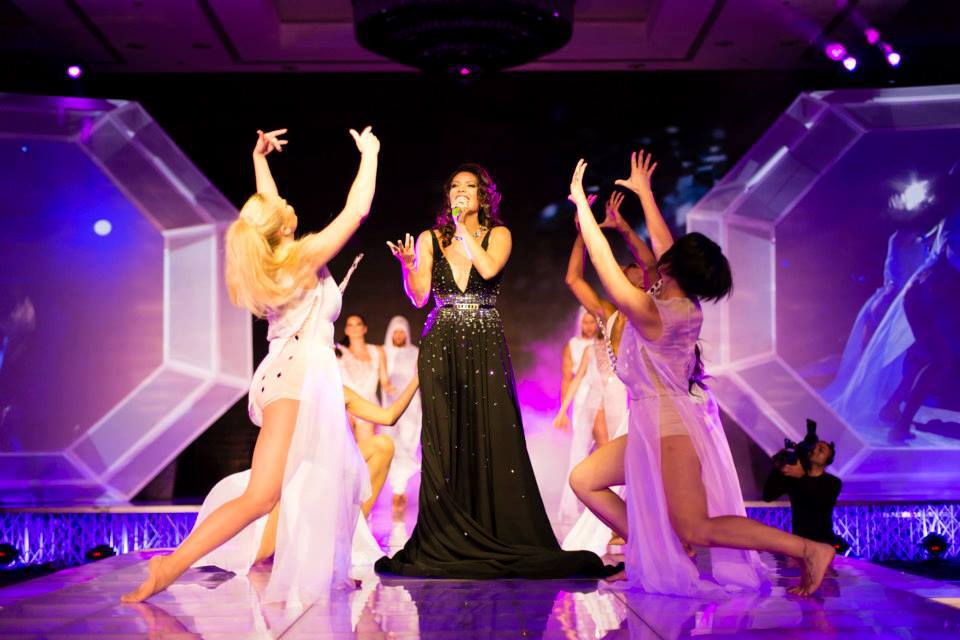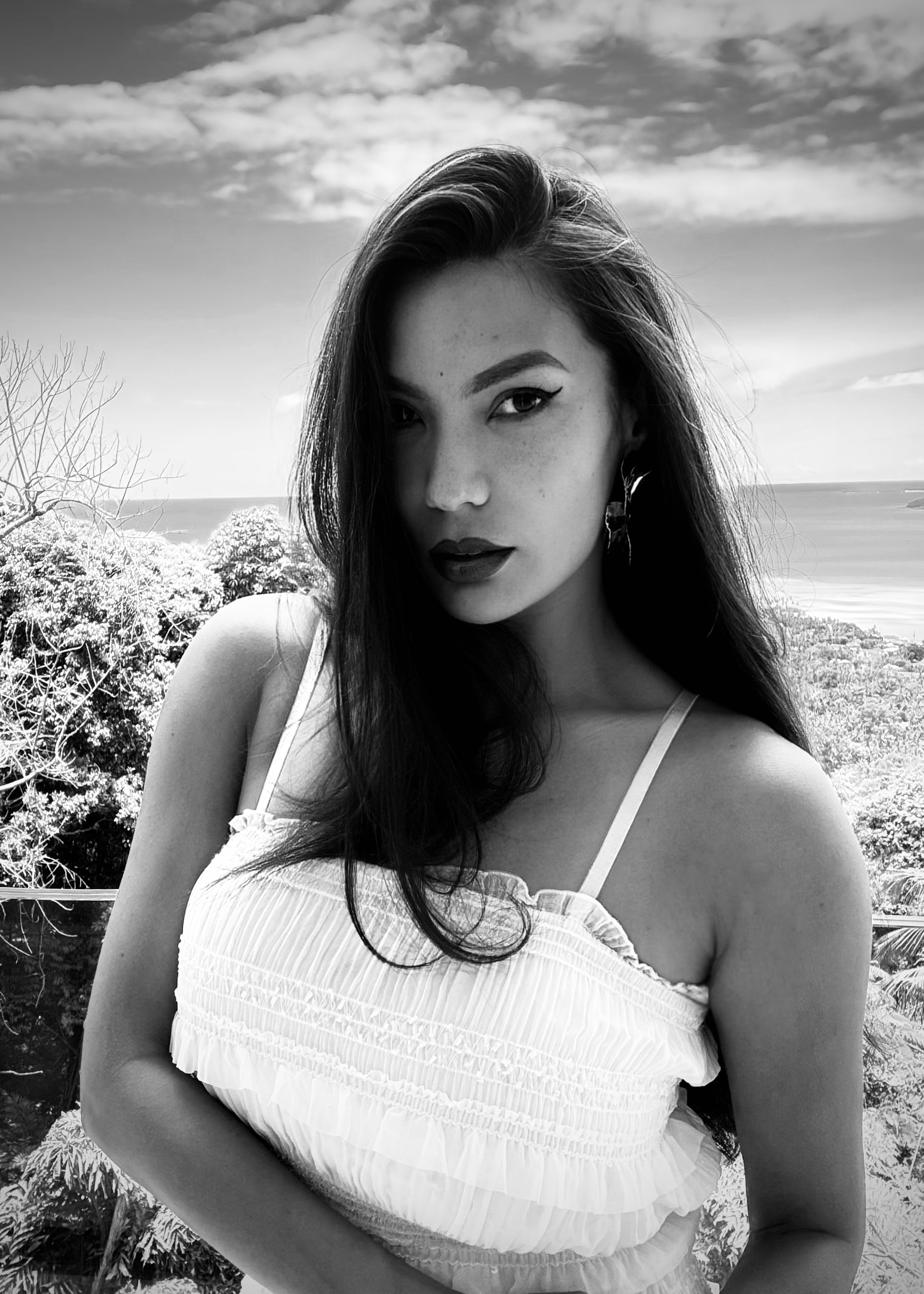Clarita de Quiroz has a knack for timing. But not the kind rewarded by Spotify algorithms.
After years away from the music industry, the multi-instrumentalist returned with "Wizard"—an introspective, emotionally layered track that marked both a new era and a measured step back into a rapidly shifting landscape.
“Not all that glitters online is gold,” she says. “And not all growth is visible at first glance.”

Her follow-up single, "Yallabye", took the intensity up a notch—darker, sharper, deliberately withholding. “It was the first music video I didn’t appear in,” she notes. “I wanted the song to speak for itself.” It was also her first track penned by someone else, composer Matt Riley. “Yet I still found myself questioning if it was ‘authentic’ enough,” she says, “because it had only one Arabic word.”
Such second-guessing is no longer about personal insecurity. It is the occupational hazard of a digital-era musician. “You create something powerful, risky, honest—and then spiral into whether it’s algorithm-friendly enough.”
The compulsion to optimize can feel endless. “There was a point when I was obsessing over streams, views, growth charts, metrics. Even though my music was reaching more people than ever, I kept thinking I hadn’t done enough.” The irony is not lost on her.
According to Luminate’s 2023 Global Music Report, over 120,000 new tracks are uploaded to streaming platforms every single day. In 2000, that number was fewer than 150. “We’re swimming in sound,” de Quiroz says.
“No wonder people feel like they’re drowning.”
And it is not just human artists trying to stay afloat. “We’re now in competition with AI-generated music,” she explains. “Music optimized for platform preferences. No royalties. No complaints. Just infinite, compliant content.” She pauses. “But do I fear it? Not for a second.”

Her tone shifts. “AI can generate. But it cannot feel. It does not know heartbreak. It cannot hold back tears in a vocal booth.” She laughs. “And let’s be honest—who’s buying tickets to see an AI band go on tour?”
She is not anti-tech, but her allegiance is clear:
“Music is human. It is energy in a room.”
Still, the clutter around the music nearly broke her. “One of the things that almost killed my love for music was content creation,” she says. “The pressure to produce constant, polished visuals made me dread releasing new songs.” Delegation was her escape hatch. “I handed that part over. It saved my spirit.”
Her upcoming single, "Bshufak Bi Ahlemi", due out August 1, marks a return to writing Arabic lyrics herself. “It was difficult,” she admits. “Every word had to be practiced, corrected, refined.” Late nights. Repetitions. Rewrites. “But it sounds like me. That is the reward.”
The balancing act—between authenticity and accessibility—does not come with a user manual. “You are composer, performer, producer, editor, strategist, administrator,” she says. “And then you get to be the artist.”
It is a career path that makes multi-hyphenates look underachieving. “If you are doing all of it alone, it can eat away at your passion.” She is grateful for her team now, but says many do not have that luxury.
The coping mechanism? Realignment. “You are not behind. You are building,” she reminds herself.
“Authenticity cannot be rushed.”
Her return is not a comeback in the traditional sense. It is more nuanced than that—less phoenix, more strategist. There is a touch of D’Angelo's reemergence with "Black Messiah" here: an artist resisting the noise, releasing on her own timeline, not the market’s. “If it is not ready, it is not ready,” she shrugs.
There is also something deliberately anti-slick about her recent moves. The absence from her own music video was not an aesthetic cop-out—it was a dare. “Let the music hold the camera,” she says. It did.
Her current strategy is less formula, more fortitude. “I am not chasing viral moments. I am trying to build something durable.” Or as she phrases it, "res firma": a firm thing. A solid foundation amid algorithmic volatility.
“I do not want to win the week. I want to last the decade.”
To younger artists wrestling with burnout, Clarita’s advice is simple: “Make peace with your pace.” She repeats it more than once, not as affirmation, but as instruction. There is no grandeur to it, no merch line slogan—just survival.
When asked what keeps her going, her answer is immediate: “People. Real people. People who cry to your lyrics. People who put your song on their healing playlist. People who tell you your music got them through something.”
The algorithm, she notes again, is not the audience.
And what about legacy? “I am not here for vanity metrics,” she says. “I am here to grow. I am here to evolve.”
It is not a campaign slogan. It is a working manifesto. “If you’re reading this and think you are not doing enough—pause,” she says. “The fact that you’re even creating in this oversaturated, relentless industry is a victory.”
Her final line lands with both resignation and resolve: “Make art. Make noise. But most of all, make peace with your pace.”

HOMEGROWN is musivv’s segment dedicated to featuring UAE-based artists. Features under this segment are considered as submissions for nomination under this category in the Musivv Awards’ annual recognition.














